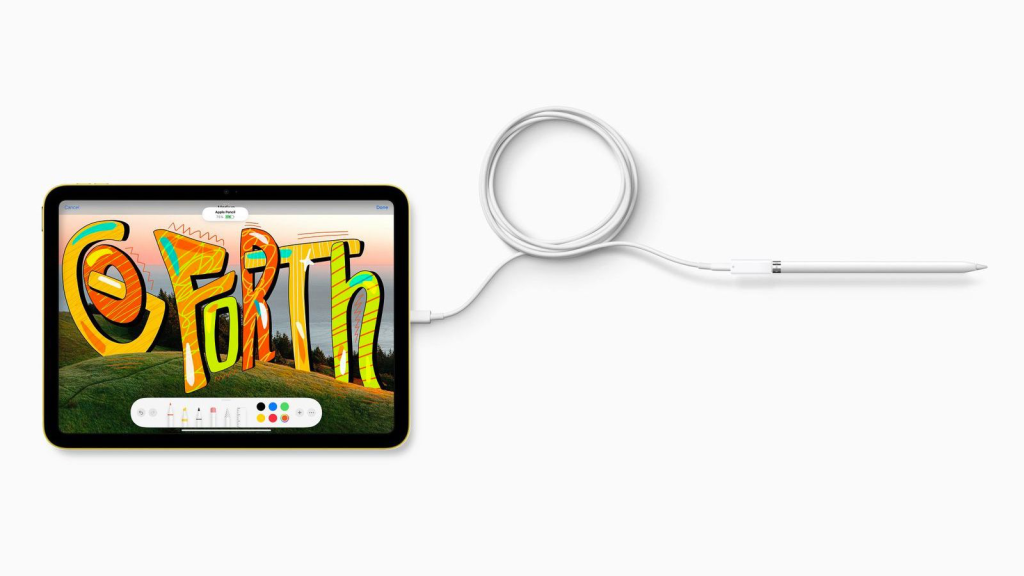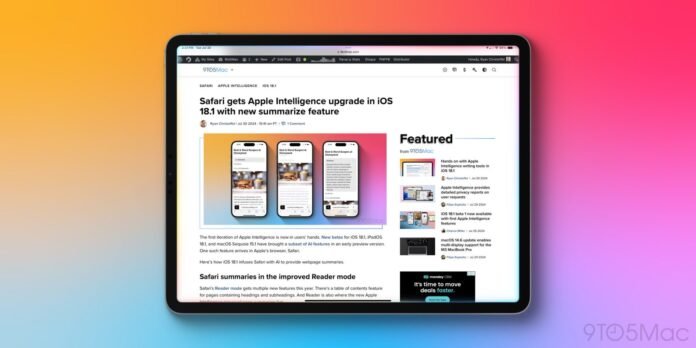Apple updated the iPad mini last week, with an A17 Pro chip and support for Apple Intelligence. However, that was the only announcement. There was no innovation on the base model iPad. This was previously expected, but it’s still a bit confusing. The current basic iPad is over two years old, why is Apple leaving it outdated?
Basic iPad history
Apple introduced what we currently call the entry-level iPad in 2017. Although the current model is the 10th generation, the budget nature of the product line started with the 5th generation. After the iPad Air came out in 2013, the iPad 4 was eventually discontinued, leaving a big gap between “iPad” innovations.
With the new iPad (5th generation), Apple wanted to create a product that would serve the masses, especially in education. It cut out all the fluff and stuck purely to the essentials, skipping the latest chipset, laminated display and Apple Pencil support. It also had a limited amount of storage: only 32 GB. However, for $329 it was a great deal.
Apple then updated this product annually, adding Apple Pencil support and a newer chip with the 6th generation, a larger screen with the 7th generation, a newer chip and fast charging with the 8th generation, and more storage space, a faster chip , and a 9th generation Center Stage camera.
Then, another year later, we got the biggest refresh in the history of the base model iPad with the 10th generation. It inherited the modern iPad design language, got some fun colors and switched to USB-C. However, it still stuck to the original formula, retaining an old chipset, a non-laminated screen and no support for the Apple Pencil 2. It still had to use the Apple Pencil 1 via a bizarre adapter, as the Apple Pencil 1 Lightning used. , while the iPad 10 used USB-C.

Why Skip a Renewal?
The current basic iPad is more than 2 years old. It currently has an A14 chip, which was about 2 years old when it launched. Apple typically puts a ~2 year old chipset in the base iPad with each refresh. And I think that may be the reason for the lack of a new iPad.
Apple probably doesn’t want to launch a new product without Apple Intelligence because they’ve made it such a big part of all new product marketing. If we want to follow history, a current iPad 11 refresh would have the A16 chip, which would not be compatible with Apple Intelligence.
Sure, they could maybe equip an A16 chip and 8GB of RAM, but I doubt Apple would want to optimize Apple Intelligence for even lower-end hardware, especially if it were just for one device.
With the iPad’s current $349 price tag, it’s unlikely that Apple could even fit a newer chipset than the A16 into the device. Furthermore, with the iPad mini 7 using the A17 Pro instead of the A18, it seems that Apple doesn’t want to put too much pressure on the second-generation 3nm process, which likely has limited capacity. It is not feasible to put the latest chip in their cheapest product.
All things considered, I think a refresh of the base iPad model while also supporting Apple Intelligence is unlikely to materialize this year. That’s why Apple has skipped updating its most popular iPad for the second year in a row.
iPad 11 release date
Now that you’ve got all that context out of the way, you might be wondering: when are they actually going to update the base model iPad? We initially expected it for this fall, but that never materialized. Display specialist Ross Young then stated that panels will ship this month, hinting at a spring release. Bloomberg’s Mark Gurman, however, has a less optimistic timeline:
The iPhone SE will get these features in March, and the entry-level iPad will likely be updated later this year.
So we may be looking at a refresh in the fall of 2025. At that point, the iPhone 17 would already be out, freeing up capacity for Apple’s most popular product to use the iPhone 16’s older A18 chip. This would enable Apple Intelligence, although it would be a bit strange if the base iPad had a better chip than the iPad mini, so maybe they’ll refresh it again next fall as well.
In any case, the iPad mini uses the leftover A17 Pro chips from the production of the iPhone 15 Pro, so they are available in limited quantities. Chances are they will renew the iPad mini as soon as necessary. Considering that the base model iPad has a significantly larger volume than iPad mini, I don’t see it following the same A17 Pro strategy.
Close
Overall, it seems quite likely that Apple skipped refreshing the base iPad, as the lack of Apple Intelligence might be bad for the optics. Either way, according to Mark Gurman, we won’t get a refresh until late 2025, which means Apple will be selling a three-year-old product with a five-year-old chipset when it finally gets updated.
That’s quite concerning for long-term software support, but that’s apparently our reality. In the meantime, Apple can benefit from additional iPad Air sales from customers interested in Apple Intelligence features but still want to stay on a budget.
What do you think about Apple seemingly going all-in with Apple Intelligence? Let us know in the comments.
Follow Michael: X/Twitter, Threads, Instagram
FTC: We use monetized auto-affiliate links. More.





